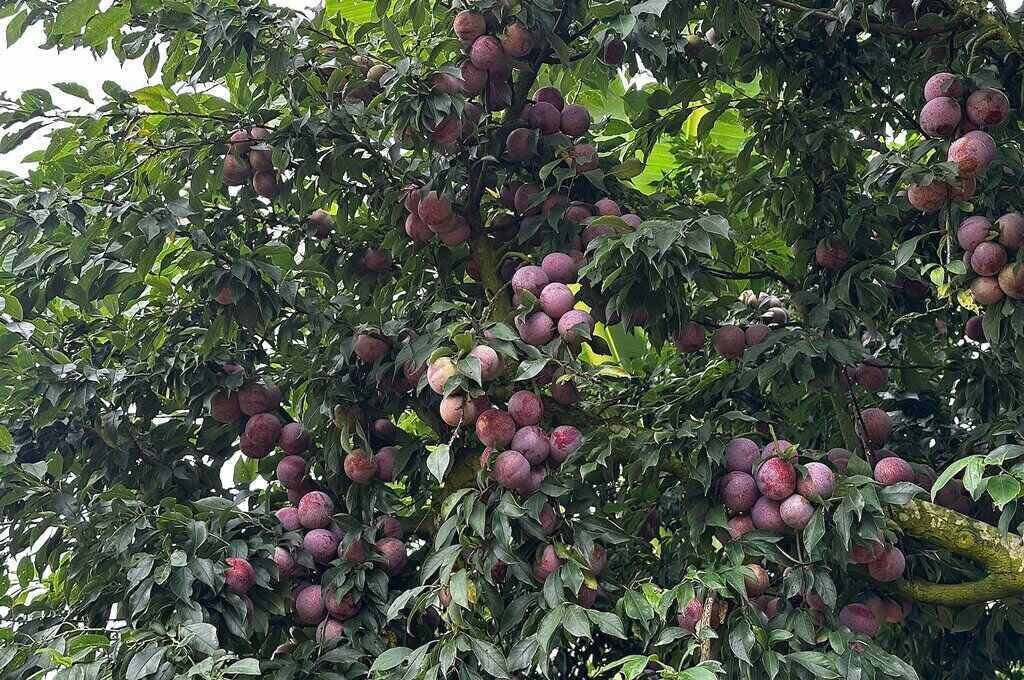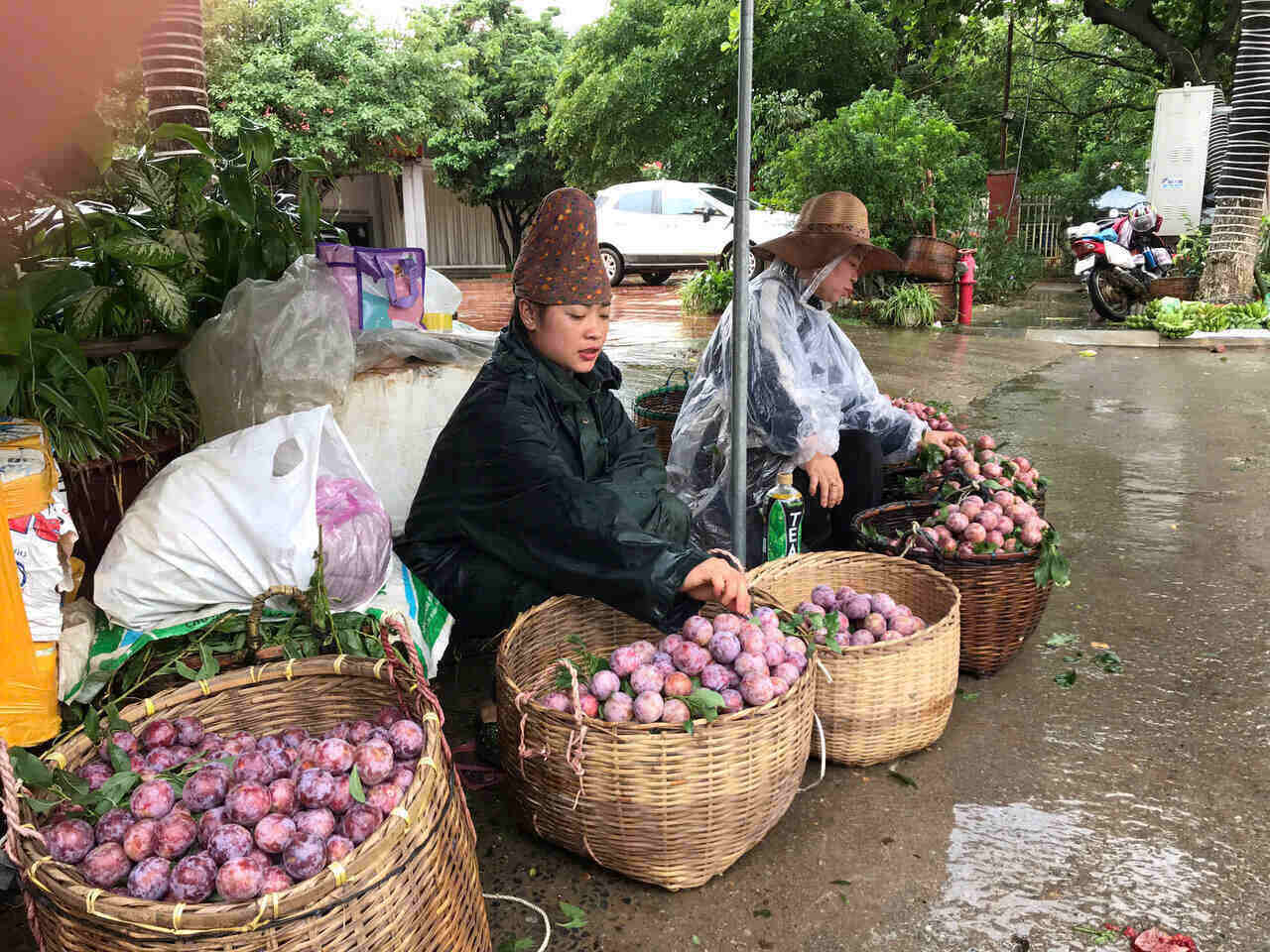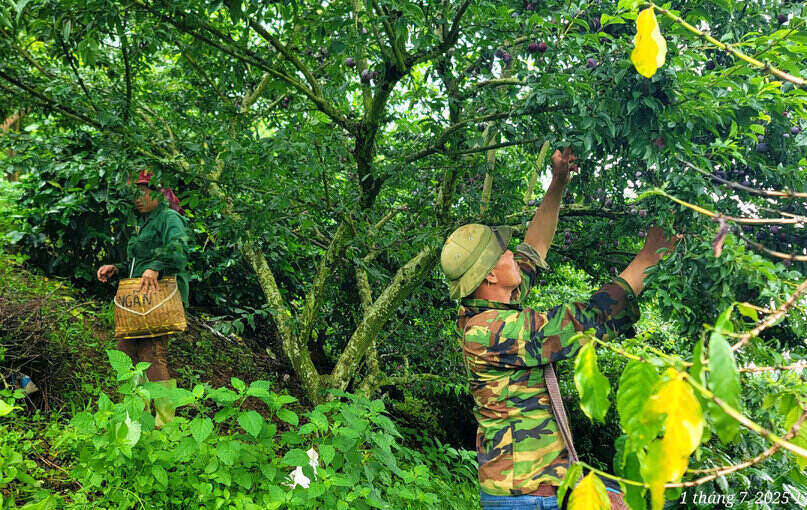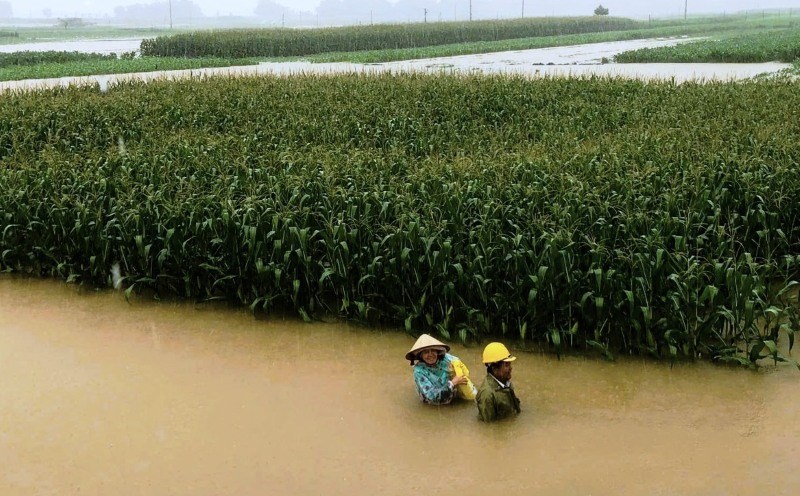According to the report, Son La currently has more than 14,550 hectares of plum trees, with an estimated output of 100,000 tons in 2025. Currently, in Van Ho, Muoi Noi, Long Phieng, Yen Son, Phieng Khoai communes, many families still have 10 - 30 tons of plums, with a remaining output of about 3,000 tons.

Ms. Do Le Thuy (Co Noi commune) said that the price of plums at the end of the season is slightly higher than before.
"The weather has been raining a lot these past few days, so my family took the opportunity to harvest about 10 tons of plums from the fields to sell. After picking, I have to use a motorbike with a chain to prevent plain cake to transport. It is hard but selling plums is a happy thing," said Ms. Thuy.

At the plum garden of Mr. Lo Van Hung (Long Phach village, Yen Son commune), it was almost 12 noon but the couple still took the opportunity to pick plums.
Mr. Hung shared: "Due to steep plum fields and easy drainage, even though it rains heavily for a long time, the plums are still hard because the water is not stagnant. But there is still a lot of plums, so my husband and I are taking advantage of the time to harvest them gradually".

According to Mr. Hung, plum prices are now more stable than before. The selling price at the garden for traders is from 6 - 10 thousand VND/kg, while the retail price is from 12 - 15 thousand VND/kg.
In Phieng Khoai commune, the plum harvesting atmosphere is still bustling at the end of the season. On the hillsides, each box of plums is carried to the truck to be shipped to the provinces and unit markets.
Nong Pieu Agricultural Products Cooperative - Phieng Khoai commune has 50.5 hectares of plums, of which over 36 hectares meet VietGAP standards; 30.5 hectares have export growing area codes. The cooperative has invested methodically, produced organically, and successfully built a "RUBY plum" brand that is popular with consumers.

Ms. Bui Phuong Thanh - Deputy Director of Nong Pieu Native Agricultural Cooperative - shared: "The cooperative applies the technique of pruning branches and reducing fruit numbers to focus on nutritional care; using organic fertilizer to cultivate coffee beans, preventing pests and diseases by biological measures and installing a cost-effective irrigation system.
Currently at the end of the season, the rain has lasted for many days, but each day the cooperative still maintains the harvest and consumption of 3 - 5 tons of plums through supermarket chains and clean food stores, such as Aeon Mall, Homefood, e-commerce platforms, at prices from 20 - 25 thousand VND/kg".

For black plums, prolonged humid weather causes them to ripen quickly, easily causing the skin to crack and fall to the roots, not ensuring quality. If the rain continues in the next 5 - 7 days, the harvested plum output may decrease by 20 - 30% due to fallen and damaged fruit.
To limit damage, people take advantage of harvesting when the rain stops, and prepare quickly to avoid damaged plums. The local government also recommends that plum growers implement measures to drain water quickly for plum gardens, avoiding flooding that will cause plum roots to rot and die, affecting next year's yield.
The plum crop in Son La still lasts until the end of July, harvesting, transportation and preservation are facing many difficulties, labor costs have increased due to prolonged rain. However, thanks to a more stable consumption market and a consumption chain also committed to accompanying the end of the plum crop, so the plum at the end of the crop is still being purchased quickly, reducing the risk of rot, damage, and loss of income.











